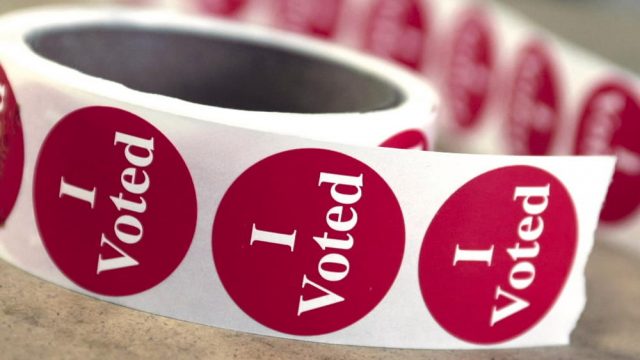Shocker: Concerns Over North Dakota’s Voter ID Laws Prove to Be Nonsense

“Despite overblown concerns about voter identification requirements, there were very few people turned away from the polls,” the Fargo Forum editorializes today, referring to the primary election last week. “There were several reported instances of precinct workers helping voters get their IDs right so they could vote. But the notion that waves of voters were prevented from voting because of ID requirements proved to be nonsense.”
Indeed. Speaking of nonsense, back in 2014 then-chairman of the North Dakota Democratic Party Bob Valeu wrote that the voter ID laws passed in 2013 were “egregious.”
[mks_pullquote align=”right” width=”300″ size=”24″ bg_color=”#ffffff” txt_color=”#000000″]…while we shouldn’t take lightly any news of voters having difficulties casting their ballots, it seems clear now in the 2016 cycle that, after some adjustments, voters are having very few issues complying with the law.[/mks_pullquote]
“Secretary of State Al Jaeger, a Republican, has since jerry-rigged the rules that now threaten to disenfranchise thousands of North Dakota voters, especially senior citizens, disabled citizens, college students, and Native Americans,” he wrote.
There were definitely some hiccups during the 2014 cycle, with both voters and election workers alike struggling somewhat with new ID requirements. And while we shouldn’t take lightly any news of voters having difficulties casting their ballots, it seems clear now in the 2016 cycle that, after some adjustments, voters are having very few issues complying with the law.
That’s good news. Everyone wants it to be easy for qualified voters to cast their ballots, but we also need to ensure that the people casting the ballots are, in fact, qualified.
Meanwhile, a Native American activist group has filed suit over the state’s voter ID law, arguing that it’s too difficult for impoverished Native Americans living in remote areas to comply with. “Many Native Americans living on Indian reservations in North Dakota do not have qualifying IDs, such as driver’s licenses or state ID cards containing a residential address,” the Colorado-based Native American Rights Fund said in a press release back in January. “Thus, in both the primary and general election in 2014, many qualified North Dakota Native American voters were disenfranchised because their IDs did not list their residential address.”
I wonder if the smooth voting in 2016 might undermine their case a bit.




